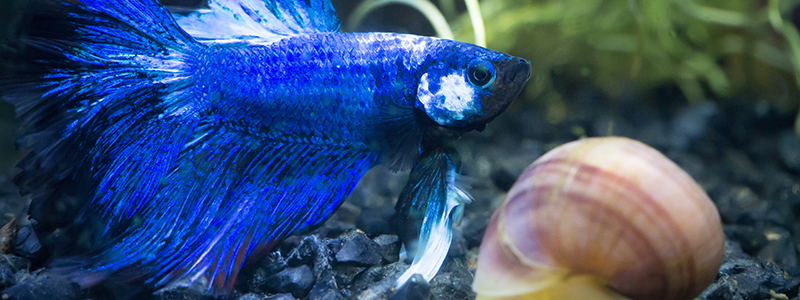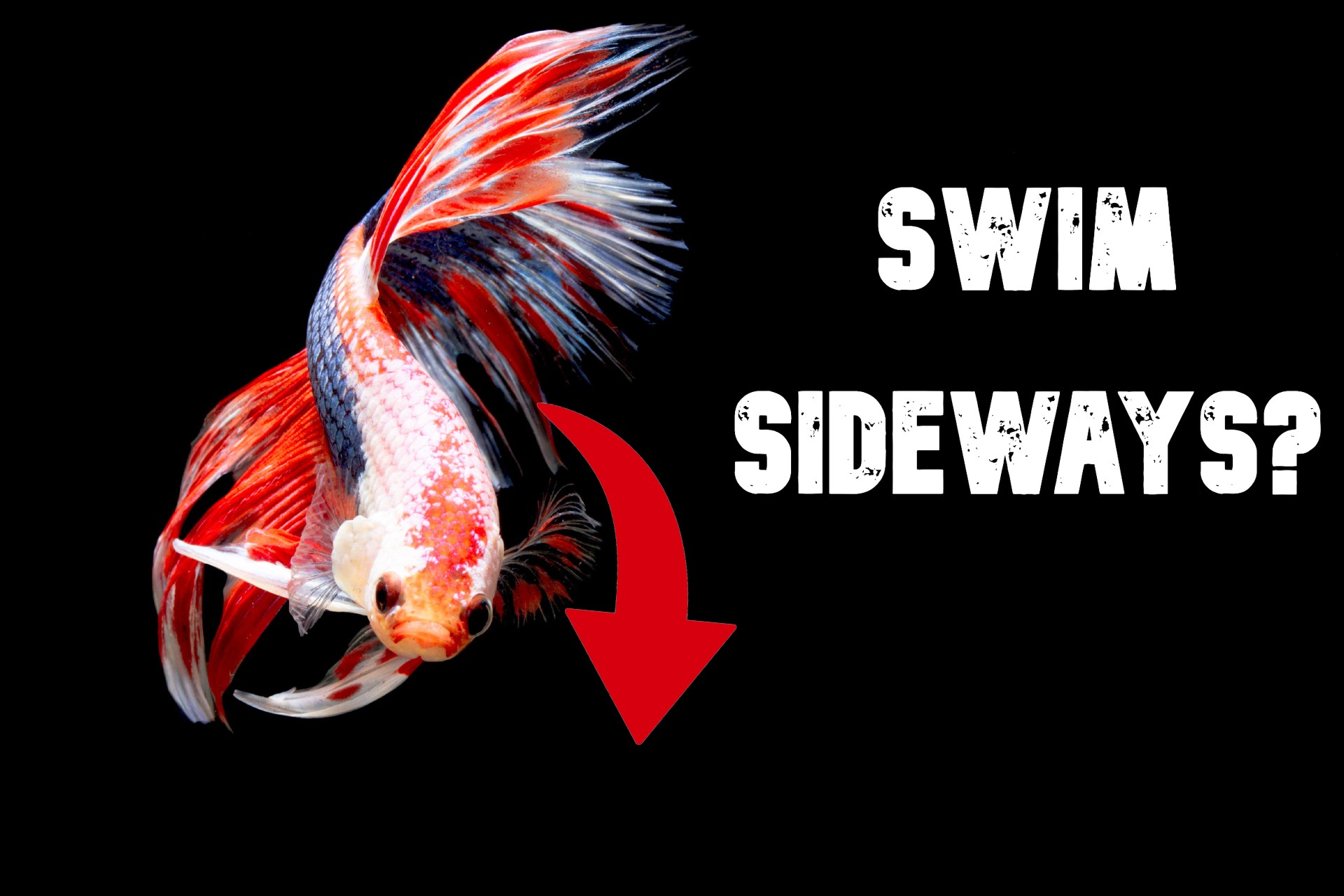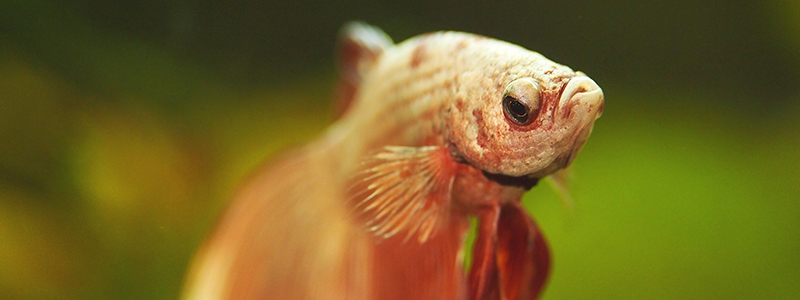Coming home and finding the beloved betta fish swimming sideways, or even sometimes upside down, can be shocking and worrying. While not necessarily fatal, betta fish swimming sideways indicates that there is a problem with their swim bladder.
Betta fish swimming sideways, or even upside down, is a result of swim bladder disease, commonly caused by overeating and constipation. Curing the disease requires fasting the fish until they are able to properly process and pass food again, then reducing the amount they are normally fed.
Fortunately, swim bladder disease is not normally a cause for alarm, and curing swim bladder disease can be fairly quick and simple. However, to properly treat swim bladder disease, it is best to understand it.
Swim Bladder Disease Causes Sideways Swimming
Betta fish, as well as much other bony fish, have an organ in their little bodies named a swim bladder. This bladder controls the fish’s buoyancy, so they don’t have to work hard by constantly swimming in order to stay in place. The swim bladder does the work to keep the betta fish in place.
Swim bladders are quite sensitive, and when disrupted can majorly affect the fish’s ability to swim properly; resulting in the fish swimming erratically, sideways, or upside down.
When a swim bladder is disrupted or negatively affected, this is known as swim bladder disease.
While not a disease in its own right, it is often a symptom of a greater underlying issue. While most of these issues are relatively easy to fix and not permanently damaging, a few of them are huge problems and potentially fatal.
What Causes Swim Bladder Disease?
There are many conditions that cause swim bladder disease. Some of these conditions are relatively harmless, some are more sinister and malignant.
The causes of swim bladder disease include, but are not necessarily limited to:
- Overeating
- Constipation
- Dirty water
- Intaking air while eating
- Parasitic infections
- Bacterial infections
- Age
- Rapid changes in water temperature and lighting
The most common causes of swim bladder disease are overeating and constipation.
Betta fish by nature eat a lot. Even if they are full, betta fish will eat everything they are fed and not feel a single drop of remorse. This overeating can cause them to be constipated sometimes.

Because the swim bladder is very sensitive, and near to the other organs of the fish, when the stomach and intestines swell, it can mess with the swim bladder. This is a very common cause of swim bladder disease.
Something to keep in mind is that some betta fish have defects in their swim bladder that typically work themselves out with age. If your betta fish has always been swimming oddly, this is likely the problem, and it will either work itself out with time or won’t be cured ever. If this is the case, don’t worry, as it isn’t a fatal problem.
Try not to change the water temperature or the lighting too much, as this can shock the fish’s system and also cause their swim bladder to glitch out.
Another cause of swim bladder disease also has to do with eating. Betta fish eat their food from the surface of the water. Sometimes, they may intake air when getting their food. This air causes their stomachs and intestines to expand more than normal with the added air, similar to how humans can become bloated when gassy.
Parasitic infections can also cause the fish’s organs to expand with the added presence of worms and other parasites. This can cause a betta’s swim bladder to become compromised and make them swim funny.
How to Cure Swim Bladder Disease
With swim bladder disease being a symptom rather than a disease itself, the cure for swim bladder disease depends largely on the cause, to begin with. In most cases, unless there is permanent damage to the swim bladder, if you solve the original problem, the swim bladder disease will be solved.
If you don’t know what is causing the swim bladder disease, there are a few things you can do to rule out the most prevalent issues.
First off, make sure your betta is in clean water. Swim bladder disease can be caused by dirty water, so making sure the water is not dirty could solve it fairly quickly. Check back on your fish in a day or two, and if it still seems to be swimming sideways, dirty water wasn’t the issue, but at least the water is clean now.

Secondly, if you notice that the fish is not passing food through its digestive tract and is constipated, try fasting the fish until it passes the food in its system. Try cleaning the water before doing this to more easily see the fish poop. After ensuring it has passed its food, try lowering the amount of food you give the betta. This should clear up any swim bladder issues within a day of solving constipation.
Next, if those still don’t solve the issue, try soaking the betta’s food before feeding it. By soaking the food, it will make it less likely that the fish intakes air while eating. Low-quality betta food often leads to the air intake, so also consider buying higher-quality food, or food that is made to sink.
If you have tried all of the above, your fish could have a more serious problem. Look for signs of bacterial and parasitic infections, as at this point it’s likely that your fish has one.
Can a Betta Fish Die from Swim Bladder Disease?
Swim bladder disease itself won’t kill a betta fish. The cause of the malady, however, possibly could kill your beloved betta.
In rare cases, swim bladder disease can be a sign that your fish is suffering from Dropsy, which is almost always fatal. Other bacterial infections that can cause swim bladder disease can also become fatal if not treated properly.
Swim bladder disease can be unnerving at first, but for most fish, it is merely temporary. If you don’t see signs of a more serious condition, your fish is safe.




